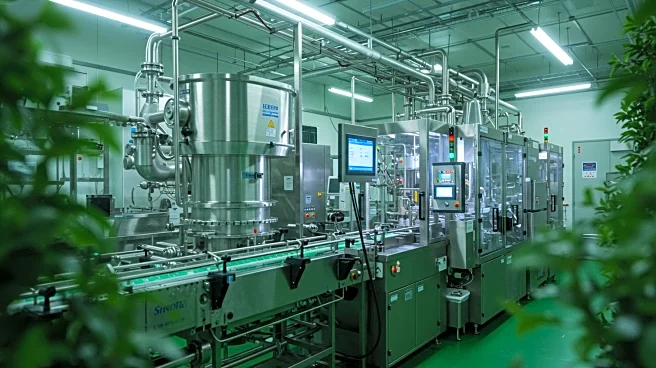What is the story about?
What's Happening?
Johnson & Johnson has announced a $2 billion investment to construct a new factory in North Carolina. This decision comes as President Trump has proposed significant tariffs on pharmaceutical imports, which could reach up to 250%. The investment is part of a broader strategy by Johnson & Johnson, along with other pharmaceutical companies like Eli Lilly and AstraZeneca, to expand domestic manufacturing in response to these potential tariffs. The new facility, developed in partnership with Fujifilm Diosynth, will span over 160,000 square feet and is expected to create approximately 120 new jobs.
Why It's Important?
The investment by Johnson & Johnson is a strategic move to mitigate the impact of potential tariffs on pharmaceutical imports, which could significantly increase costs for companies relying on foreign manufacturing. By expanding domestic production, Johnson & Johnson aims to secure its supply chain and reduce dependency on imports, which aligns with President Trump's focus on national security and economic independence. This development could influence other pharmaceutical companies to follow suit, potentially reshaping the industry landscape in the U.S. and affecting drug pricing and availability.
What's Next?
The U.S. has recently agreed to cap pharmaceutical tariffs on European Union imports at 15%, effective September 1. This agreement may alleviate some immediate concerns for pharmaceutical companies, but the long-term implications of Trump's tariff strategy remain uncertain. Companies may continue to invest in domestic production to safeguard against future tariff increases. Stakeholders, including industry leaders and policymakers, will likely monitor the situation closely to assess the impact on the pharmaceutical market and national security.















